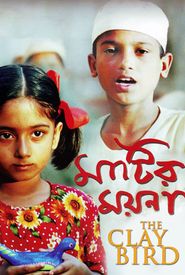Tareque Masud, a Bangladeshi independent film director of great renown, left an enduring and indelible mark on the world of cinema, forever changing the landscape of the industry. His remarkable and illustrious body of work, comprising a diverse range of critically acclaimed films, including the highly acclaimed and groundbreaking Muktir Gaan, released in 1995, and the equally remarkable Matir Moina, which premiered in 2002, garnered widespread recognition and numerous prestigious awards, cementing his position as a master filmmaker.
The cinematic masterpiece, Matir Moina, brought Masud international acclaim, as he was awarded the prestigious International Critics' Prize and the FIPRESCI Prize for Directors' Fortnight at the 2002 Cannes Film Festival, thereby cementing his reputation as a virtuoso filmmaker of unparalleled skill.
Tragically, his life was tragically cut short on August 13, 2011, in a devastating road accident, leaving behind a legacy of cinematic excellence that continues to inspire and influence generations of filmmakers to this day.
Masud's origin story unfolded in the rural village of Nurpur, nestled within the administrative boundaries of Bhanga Upazila, Faridpur District, Bangladesh. The tumultuous backdrop of the Bangladesh Liberation War against the Pakistan forces in 1971 significantly altered the trajectory of his life, forcing an abrupt halt to his studies at an Islamic madrasah.
Masud's personal life was characterized by a romantic and harmonious partnership with his wife, Catherine Masud, a Chicago-born film editor who shared a profound passion for cinema, mirroring his own unwavering enthusiasm for the art form. Throughout their life together, they embarked on numerous collaborative projects, their creative synergy yielding a lasting and indelible impact on the world of filmmaking, as they worked side by side, their shared vision and dedication leaving an enduring legacy that would be cherished for generations to come.
























